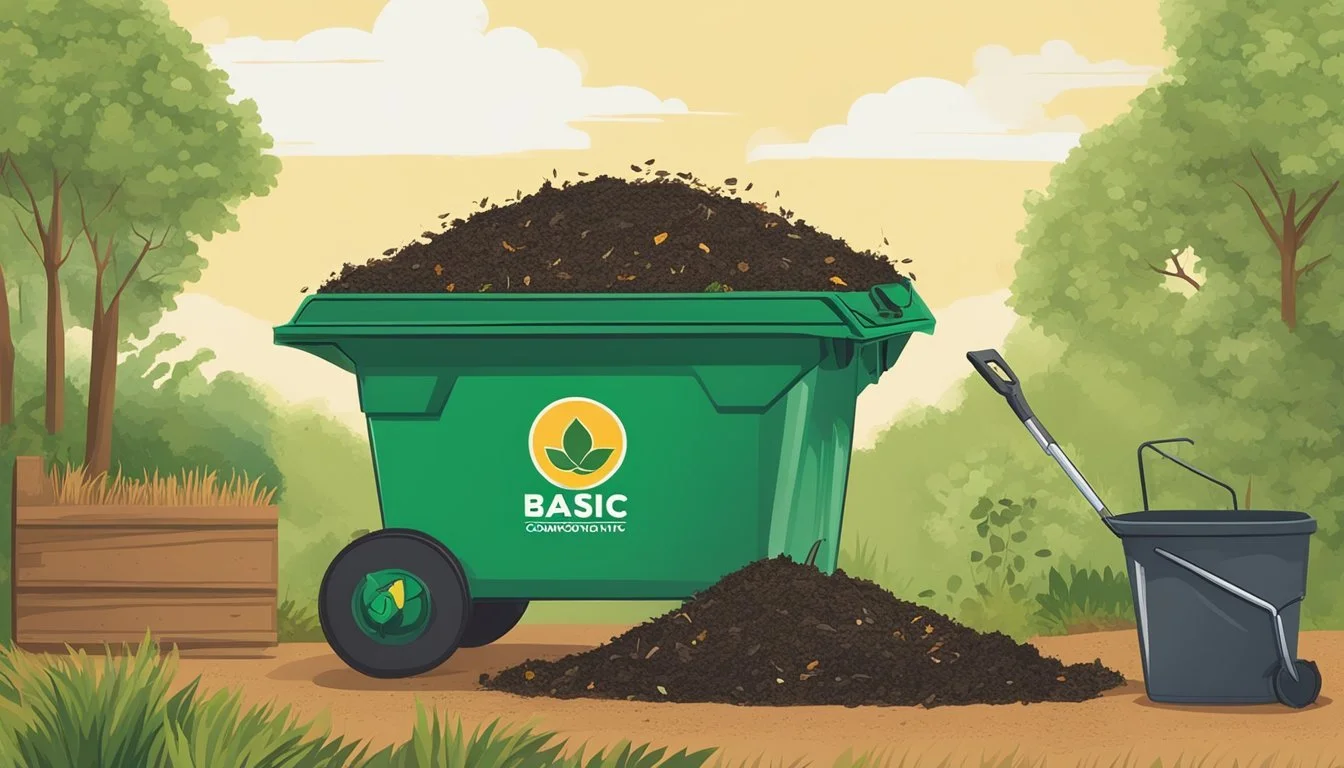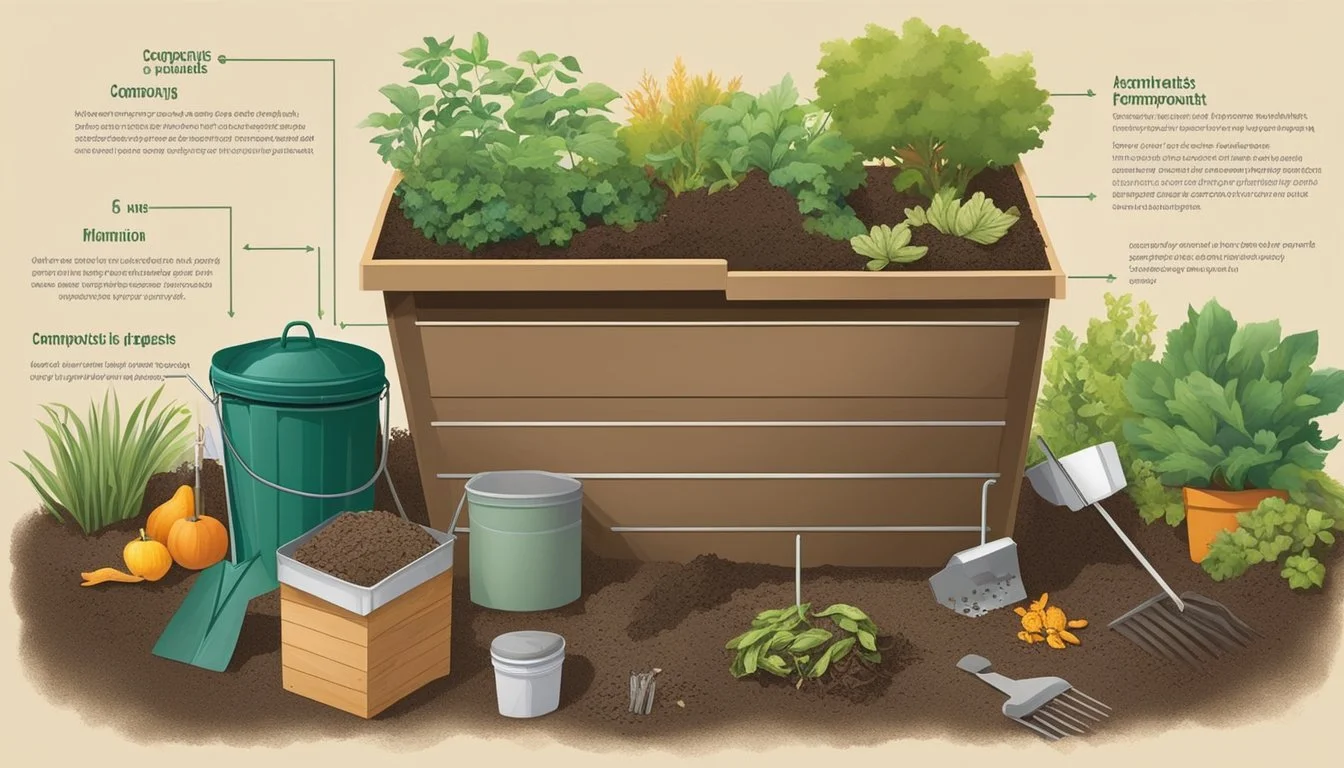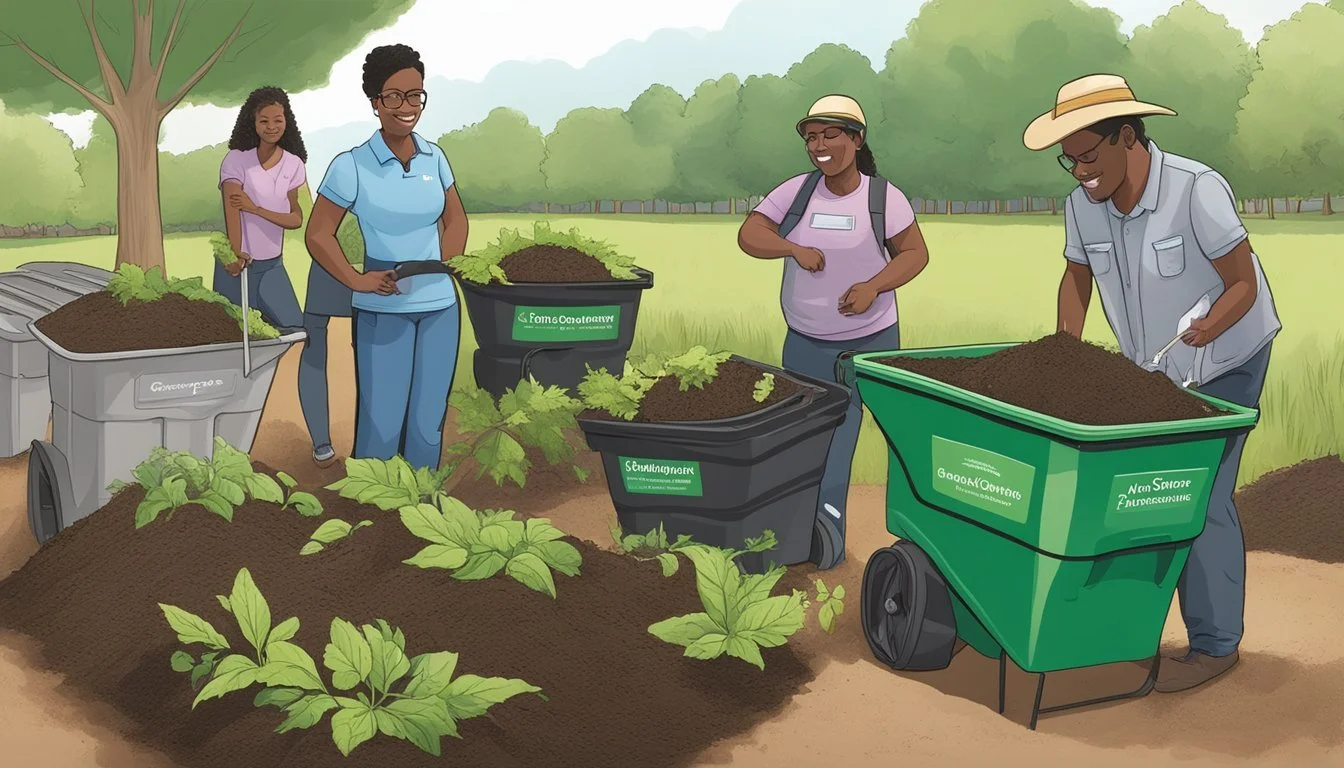Guide to Composting in Tuscaloosa, AL
Best Practices for Residents
Composting stands as a perfect blend of science and nature to manage and recycle organic materials generated in households and gardens. In Tuscaloosa, Alabama, embracing the practice of composting provides a remarkable benefit for both the environment and the soil health. Through the breakdown of organic material such as leaves, fruit peels, and vegetable scraps, composting transforms waste into a valuable amendment that enriches the soil and nurtures plant life.
The process of composting in Tuscaloosa involves the collection of organic waste, which is then broken down by microorganisms in a controlled environment. This method not only reduces the volume of waste ending up in landfills but also plays a crucial role in creating a sustainable loop of nutrients. By returning these nutrients to the soil, compost improves soil structure, moisture retention, and provides plants with essential nutrients.
Residents and gardeners in Tuscaloosa can easily start their composting journey with some basic knowledge and commitment. It requires an understanding of the balance between carbon-rich materials, like dried leaves and branches, and nitrogen sources found in kitchen scraps and yard waste. Regular maintenance of the compost pile includes turning it to enhance aeration and monitoring moisture levels to keep it at the ideal dampness, akin to a wrung-out sponge. With time and care, these efforts culminate in the production of a dark, crumbly, and nutrient-packed compost that significantly benefits garden beds, lawns, and potted plants.
Basics of Composting
Composting is a practical way to repurpose organic waste, turning it into a soil conditioner teeming with essential nutrients. This section dives into the what and why of composting in Tuscaloosa.
What Is Composting?
Composting is the natural process by which organic matter is decomposed and recycled into compost, a substance that enriches soil and aids plant growth. It involves layering kitchen scraps such as vegetable peels, fruit waste, coffee grounds, and yard waste like leaves and grass clippings. The decomposing material, brown for carbon and green for nitrogen, encourages microorganisms to break it down, transforming organic waste into a valuable fertilizer.
Benefits of Composting
Waste Reduction: By diverting food scraps and yard waste from landfills, composting significantly reduces the volume of garbage contributing to waste buildup.
Soil Health: Compost improves soil structure, allowing it to retain more nutrients and water, which is beneficial for plant growth.
Reduce Greenhouse Gas Emissions: Composting organic material prevents the production of methane, a potent greenhouse gas, by reducing the amount of organic waste sent to landfills where it would decompose anaerobically.
Compost acts not only as a fertilizer but also as a soil conditioner, revitalizing soil and sparingly replacing the need for chemical alternatives. The process involves a balanced mix of nitrogen-rich green matter and carbon-rich brown matter to expedite decomposition, offering a way to sustainably manage organic waste in Tuscaloosa while simultaneously enhancing garden and lawn health.
Setting Up Your Compost Area
Setting up an effective compost area is crucial for successful backyard composting. This includes choosing an appropriate location and selecting a suitable compost bin or pile for your yard or garden.
Choosing the Right Location
For Tuscaloosa residents, finding a dry and shady spot in the yard is optimal. It should be close enough to a water source to maintain moisture but not so close that the compost pile could become waterlogged during heavy rains. Additionally, consider the size of the compost area; it should be proportional to the yard and garden's needs and available space. A spot with partial shade is ideal as it protects the pile from excessive heat and retains moisture without being overly damp.
Selecting a Compost Bin or Pile
Individuals have the option between constructing a compost pile or using a compost bin. If space and aesthetics are a concern, a compost bin might be preferable. It contains the compost neatly and can accelerate the decomposition process due to containment and heat retention. For community gardens or those with larger spaces, compost piles are an economical choice and can be simply set up with wire mesh and poles for support, as suggested by the USDA guidelines on backyard composting. Regardless of the choice, it is important to ensure the compost bin or pile is of adequate size to handle the organic waste produced.
Composting Ingredients
In Tuscaloosa, Alabama, successful composting hinges on using the correct balance of green and brown materials to create a nutrient-rich amendment for gardens.
Green and Brown Materials
Compost requires both nitrogen-rich 'green' materials and carbon-rich 'brown' materials. An optimal ratio for efficient composting is roughly 1 part green to 3 parts brown.
Green materials are nitrogen sources and include items such as:
Vegetable scraps
Fruit peels
Coffee grounds
Grass clippings
They are crucial for the composting process and for providing necessary nutrients.
Brown materials are carbon sources and include:
Dry leaves
Twigs
Straw
Cardboard
Paper
Brown materials add necessary bulk and help to balance the moisture levels within the compost pile.
Items to Avoid in Your Compost
To maintain a healthy compost process and avoid attracting pests, certain items should not be added to compost piles.
Meat or fish scraps: They can create odor problems and attract pests.
Dairy products: Similar to meats, they can attract unwanted animals.
Diseased plants: They might spread pathogens to the compost and subsequently to your garden.
Pet wastes: Can contain parasites and germs.
Glossy/printed paper: May contain heavy metals or other toxic substances.
Incorporating the correct green and brown materials into a compost pile not only generates rich soil but also contributes to reducing greenhouse gas emissions by diverting waste from landfills.
Composting Process
Composting in Tuscaloosa, AL, involves layering organic materials, maintaining optimal conditions for decomposition, and ensuring proper aeration through regular turning. Mastery of these steps results in successful conversion of waste into nutrient-rich soil.
Layering Your Compost
The compost pile should start with a balanced mix of carbon-rich materials like dead leaves or straw, and nitrogen-rich materials such as kitchen scraps or grass clippings. These layers should be alternating, with the recommended ratio being roughly 3 parts carbon to 1 part nitrogen to accelerate the decomposition process.
Maintaining the Right Conditions
For microorganisms to thrive and effectively break down compost materials, the pile requires a moisture content between 40 and 60 percent. It should feel moist to the touch, but not dripping wet. Temperature is also a crucial factor; the compost should maintain a steady temperature to support microbial activity but not so high as to kill beneficial organisms.
Turning and Aeration
Regularly turning the compost pile is crucial; it introduces oxygen, crucial for aerobic decomposition. Without enough oxygen, the pile may emit foul odors indicating anaerobic conditions. Turning the pile every few weeks should suffice to keep the oxygen levels adequate and assist in maintaining an even temperature throughout the pile.
Using Your Compost
Optimizing the health of your garden in Tuscaloosa, AL, depends on the effective use of finished compost. This valuable amendment enriches the soil, bolsters plant growth, and helps retain moisture.
Determining Compost Maturity
Finished compost is dark, crumbly, and has an earthy odor. Before application, verify that the compost is mature by checking that the original organic materials are unrecognizable. Mature compost should not emit a foul odor and should be cool to the touch, suggesting that microbial activity has slowed down.
Applying Compost to Your Garden
Compost can be applied to your garden in several ways to benefit the plants and soil:
As a soil amendment: Mix compost into the top layer of soil to create rich soil that supports plant growth. This integration enhances nutrient content and improves soil structure.
As mulch: Layer compost on top of the soil around plants to conserve water, suppress weeds, and prevent erosion.
In Tuscaloosa, ensuring your garden thrives involves regularly incorporating finished compost to support a vibrant and healthy ecosystem.
Troubleshooting Common Issues
When engaging in composting practices in Tuscaloosa, AL, it is vital to maintain a careful balance and address issues promptly to ensure a successful composting process.
Odor Problems
Odor issues arise when compost piles are not properly balanced between carbon-rich material and nitrogen-rich materials. A pile that smells may be too soggy, indicating an excess of nitrogen-rich materials such as food scraps and manure. To rectify this, add carbon-rich materials such as dry leaves, straw, or cardboard to absorb excess moisture and neutralize odors. Turning the pile regularly also introduces oxygen, which is critical for aerobic decomposition and keeping the pile odor-free.
Pests and Animals
Pests and animals are attracted to compost bins due to the presence of food waste. To deter them, ensure a proper balance between green and brown materials, and never add meat, oils, grease, weed seeds, pet waste, or diseased weeds to the compost. These items not only attract unwanted guests but can also disrupt the composting process. Use a bin with a secure lid and hardware cloth lining to prevent animal intrusions. Regularly turning the pile and burying food scraps deep within can also minimize pest problems.
Advanced Composting Techniques
Advanced composting techniques can elevate the practice of converting organic waste into nutrient-rich soil. These methods require a bit more knowledge and care but offer efficient decomposition and excellent final products for gardening.
Vermicomposting
Vermicomposting involves the breakdown of organic material through the action of earthworms. Specifically, the red wiggler (Eisenia fetida) is a species well-suited for worm bins. They are efficient at consuming and processing kitchen scraps into vermicast, an exceptionally nutrient-dense form of compost. The key to successful vermicomposting is maintaining a balance of moisture and air in the bin to support the life of the earthworms.
Bokashi Composting
Bokashi composting, originating from Japan, is a method that involves fermenting organic waste, including meat and dairy, which are typically not recommended for other composting methods. Under this method, microorganisms create an anaerobic environment that accelerates the decomposition of kitchen scraps. The process is carried out in a sealed container where the waste is layered with a bokashi bran mix teeming with the necessary microbes. Bokashi composting is particularly useful for those with limited space and for reducing waste sent to landfills.
Composting Regulations and Community Involvement
In Tuscaloosa, AL, composting activities are influenced by local regulations which support recycling and address organic waste. Residents can engage in composting practices that not only comply with these regulations but also contribute to community initiatives, such as community gardens, contributing to a sustainable environment.
Local Composting Rules
In Tuscaloosa, composting regulations are established to manage the disposal of organic material and encourage eco-friendly waste management. While specific composting rules can vary, the basic framework often includes guidelines for proper composting procedures to ensure environmental safety and public health. Residents should familiarize themselves with these regulations to avoid penalties and maximize the benefits of their composting efforts. Information on state-level regulatory details can be linked to organizations like the Composting Council.
Participating in Community Composting
Tuscaloosa's residents have the opportunity to participate in community composting initiatives. These programs are designed to improve access to composting resources and to support recycling efforts at a local level. Community gardens in Tuscaloosa often incorporate composting as a key element of maintaining soil health and managing organic waste responsibly. By joining these programs, individuals contribute to a collective effort aimed at reducing landfill waste and nurturing green spaces within the community.







